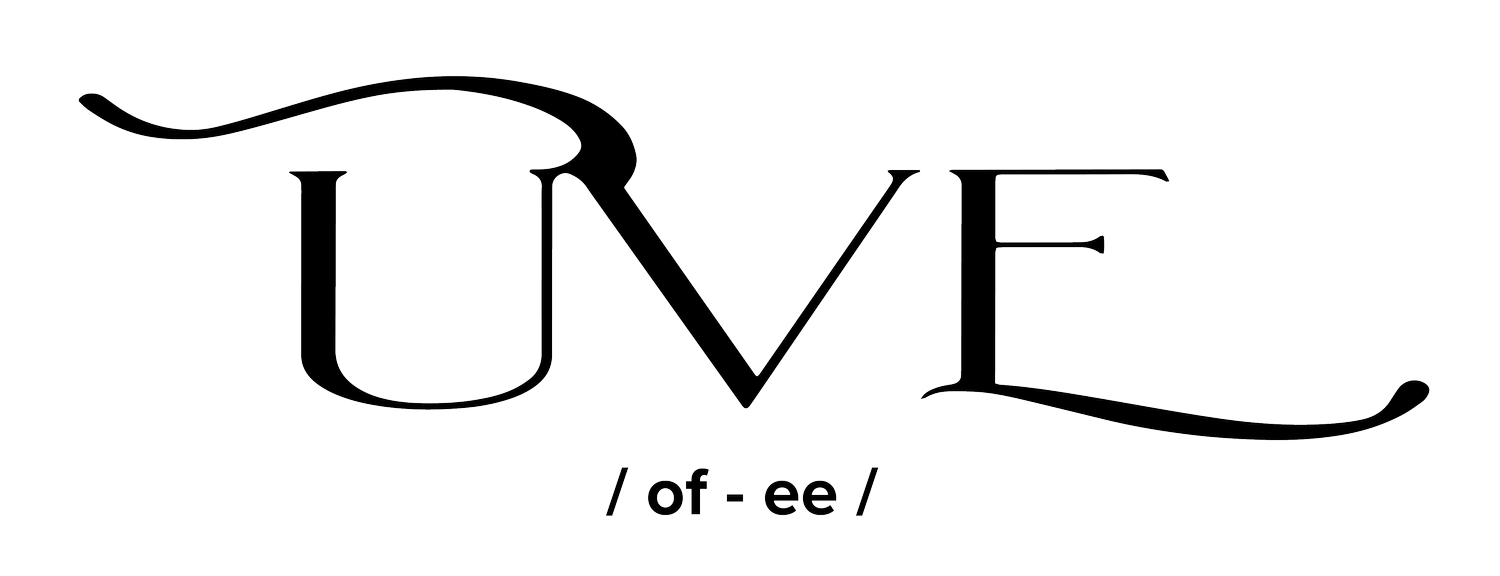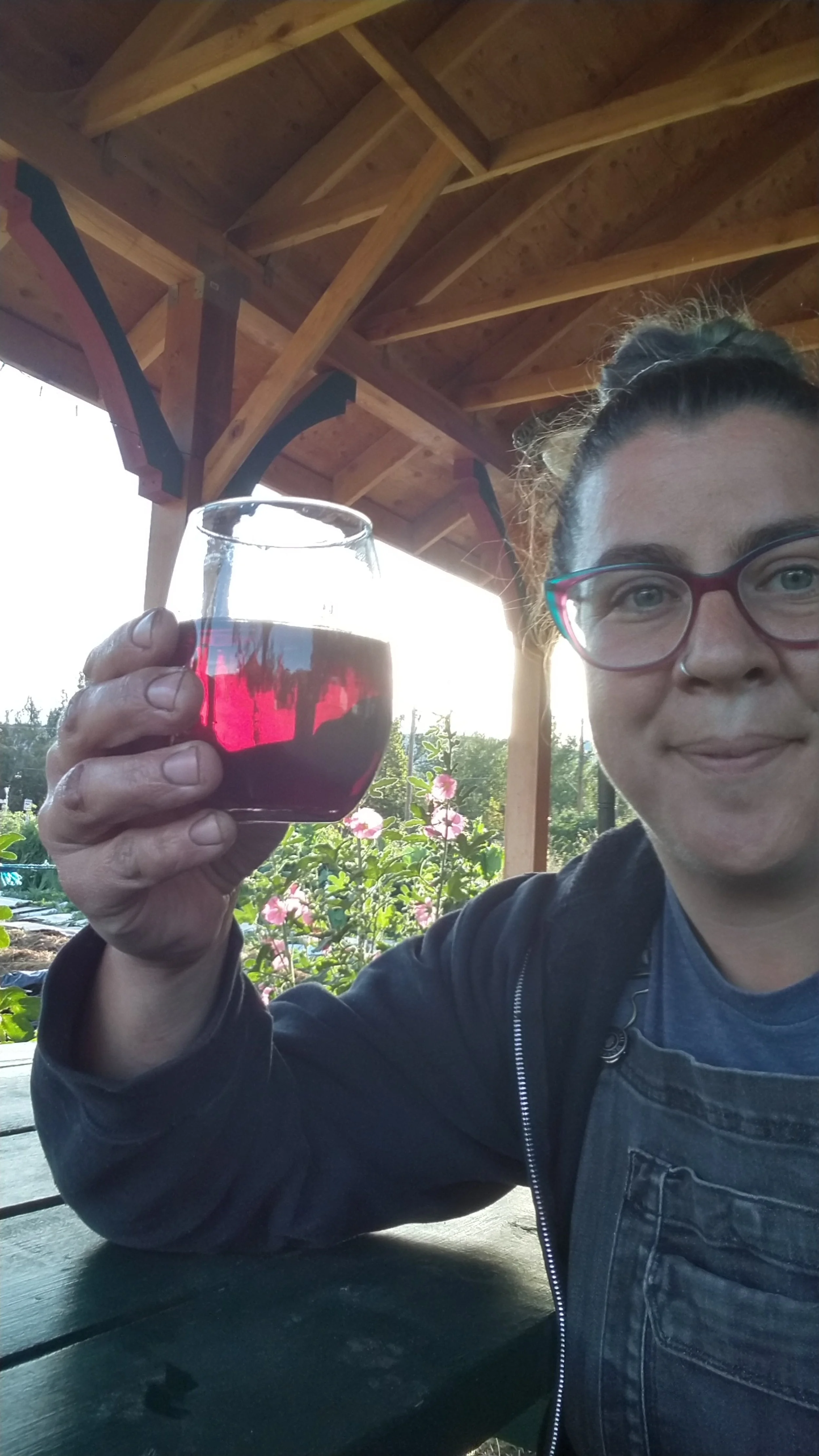The Art and Science of Making — Meet Dora Boyd Cohen
by Caity Roberts
Dora Boyd Cohen
Dora Cohen is a maker. She thrives on creating tangible things that can be joyfully consumed, gifted, and shared. Five days after meeting Dora during UVE’s in-person Holistic Financial and Land Planning course, I had the opportunity to taste the literal fruits of her making for the first time. She popped the cork on her plum wine for a few of us who were up far too late, chatting about life on the eve of the last night of the course.
I worked in the wine industry for six years, and there is no nice way to say it, but I am a bit of a wine snob. You can learn a lot about any sort of maker by what they craft. What I learned about Dora "in the bottle" is that she is curious, playful, deliberate, and deeply committed to place-based creativity. Dora Cohen has become one of my favorite Pacific Northwest winemakers.
Check out her YouTube page: Dora Does Things!
The story of Dora’s journey starts with her great-great grandparents settling in Eastern Oregon on the Oregon Trail. They ran some of the first businesses in the area, including a mill and power plant. After generations of fragmentation, Dora has lived on one of the remnants of her family’s land, in their original farmhouse, since she was a teenager. As an adult, she left for fourteen years, returning with a PhD in ecology and evolution and a focus on the ecology of soil bacteria.
However, when the time came to pursue an academic career, she chose against it. A career in academia meant she needed to be willing to go anywhere in the world. Dora decided against that unmoored lifestyle. Her mom had just been diagnosed with terminal cancer, and she was determined to stay in Union, Oregon, and pursue another passion she developed in grad school: brewing beer. She worked for several years in the brewing industry. Her mom insisted she spend more time in the wider world, but she was determined to come home.
Dora’s mom named both Dora and the business that she inherited "Dora's Garden," after her great Aunt Dora. The business comprises a 50-acre organic alfalfa field, a half-acre grass pasture, and a half-acre organic market garden. She also manages three different ranching tenants, totaling more than 700 acres.
Dora realized soon after taking over the business that she needed more training. Dora says she was "very aware of just how much there was to know." Her mom had already begun working with Savory Master Field Professionals Tony and Andrea Malmberg shortly after Dora left for college in order to improve grazing management. Dora continued her mom’s relationship with the Malmbergs and began learning Holistic Management through the courses UVE offered.
Garlic coming up with old hay ground cover in the garden in 2023
As Dora dug more into Holistic Management, she found it to be a natural continuation of her PhD research in soil ecology. Dora realized that the foundational concepts of ecology align with what she is learning now with UVE. For example, "A more diverse community is a more stable community," which Dora points out describes the ecosystem process of community dynamics. "Moving a community from a monoculture towards a more complex and diverse ecosystem, that's foundational to the work that I was doing in grad school, and it seems foundational to the work that I am doing now."
Intellectually, Dora knew she was where she needed to be. But like many who find their passion in land-based livelihoods, how to make a living at it was another thing entirely. She is using what she has learned from soil bacteria and Holistic Management to improve the resilience and effectiveness of community dynamics in her business by diversifying her offerings from the initial monoculture focus on tomato seeds. She will continue to offer her highly adapted tomato seeds but wants to also provide seeds from a greater diversity of plants to contribute to the resilience of her ecoregion’s local food system and require “less hand-holding,” as she likes to put it.
With her holistic financial plan completed in this start-up phase of her business, Dora seeks to give herself room to play, and, if need be, pivot. As she explores new enterprises, she always engages with the feedback loop: "I am constantly trying to find the right mix of little things" to be more resilient.
For example, last year, Dora used her four geese in the garden to help integrate cardboard mulch and build topsoil. Many market gardeners use cardboard sheet mulch because it offers high-carbon topsoil when it decomposes. However, through monitoring, she realized that she would have to modify the technique to adapt it to her more brittle context. The action of the geese trampling and pooping on the cardboard created a microclimate with more consistent humidity at the soil surface, allowing the cardboard to decompose more effectively. She was improving her mineral cycle through animal integration.
Photo by Caity Roberts
She soon realized she needed more geese to thoroughly test the concept. Her experiment with the geese led her to know she not only required more geese but would benefit from a larger animal altogether. Hence, over a glass of her rhubarb wine, Dora and the Malmbergs agreed to experiment with sheep in her garden this year. Dora hopes the Malmberg's hair sheep will clear vegetation and fertilize the ground. "Mom would have a team of people with gas-powered weed whackers" doing the same work Dora hopes the sheep will offer her this year. She will then come through with a spade to establish new areas to cultivate later this year. Her own playfulness allows her to embrace the feedback loop intrinsic to managing holistically as a form of exploring what works. "Having the sheep or geese do the clear-cut right before planting is better for the soil; it's better for my hands, it's better for my back, it's better all around…it solves a lot of problems."
Currently, Dora is elevating her mother's passion for seed saving with her powerhouse combination of playful curiosity and scientific rigor. As we finished our call, dreaming of the next time we could share her newest cherry wine, I asked Dora what her pie-in-the-sky dream was. Dora told me, in short, that she wants to keep making and sharing what she makes. She wants to make partnerships with other local businesses that could be of mutual benefit. She wants to make a home and a livelihood on her family's land. She wants to make a space where others could be creative and become more resilient together, and of course to continue making and eventually selling to the public some of the Pacific Northwest's finest wines.
Caity Roberts is a Savory Accredited Professional, and Dora is in the process of becoming one!
Join us for the Holistic Planned Grazing and Ecological Monitoring Course in Union, Oregon, in June!




